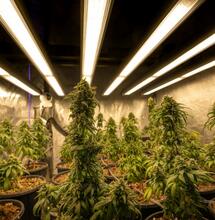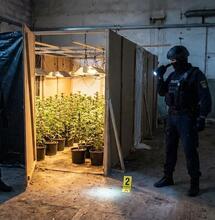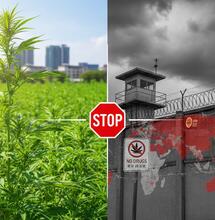Which Countries Will Follow Thailand?

Thailand wrote history in 2022 as the first Asian country that allowed homegrowing cannabis. Although Thai law implies that cannabis plants can be cultivated and used only for medical reasons, the new legislation has galvanized the rise of various kinds of products, including those high on THC. While Thailand grabbed an early seat in the sector, other countries in the region, like South Korea, Japan, or Malaysia, are also eyeing the prospects of introducing cannabis regulation.
Thailand's policy change on cannabis last year sent shockwaves in a region widely known for practicing draconian punishments even for the most mundane offenses. Still, Thailand's early positioning on the market is not out of nowhere. It was Thais after all who used cannabis in their traditional medical practice. They used the plant for fatigue and for pain relief from labor, but the natural medicine was made illegal in 1935.
As Thailand practically now returns to its roots, the question everyone's asking is which will be the next country across Asia to join the nascent industry. After North America and Europe, Asia is the next frontline for cannabis. Experts believe the Asian cannabis marketplace will grow at least 10 times in the next three years, becoming a $120 billion worth industry by 2026.
So, no surprise at all that the list of governments considering the option of easing the rules and adopting some form of legalization keeps on growing.
South Korea
South Korea legalized the medicinal use of cannabis back in 2018, before Thailand. Two years later, the country designated one of its southeastern provinces, Gyeongbuk, as a regulation-free zone where farmers can freely grow hemp. There are places in the province, like the city of Andong, where hemp has been cultivated for thousands of years. Andong is now one of Korea's hot hubs for cannabis. But even though these are some very positive developments, the country doesn't look willing to let go of some of its strict laws. A person who smokes or sells cannabis might face up to five years in prison. Access to medicinal cannabis remains limited. It's only available for a few diseases and at a limited number of clinics.
Japan
In 2022, Japanese lawmakers and politicians intensified the debate on whether medicinal cannabis should be allowed in the country. A subsequent report from the Japanese Ministry of Health, Labor, and Welfare recommended an amendment to Japan's drug law to permit cannabis in medical practice. An eventual upgrade to the regulation would see cannabis regarded like any other pharmaceutical. Epidiolex is currently the only approved cannabis medicine by the Japanese government. The country's stance against recreational use remains strict. So strict that when Canada went fully legal in 2018, the government felt the need to issue a reminder for Japanese nationals living abroad saying that cannabis is still illegal even if they live in a country where it has been made legal.
Malaysia
The country's health minister said in a statement last year that "there should be decriminalization of drugs," marking a change of stance. The legalization of medicinal marijuana should subdue criminal drug trade networks, the minister said. He also cited Canada as an example and said that even with legislation in place, the illegal market wouldn't disappear overnight. Like other countries, Malaysia seeks safe and tested products once it launches its medical cannabis program.
Myanmar
Thailand's neighbor has recently introduced amendments to its laws to remove imprisonment penalties for simple possession of drugs. It's a small step in the right direction and perhaps a signal that Myanmar will make more effort in the near future to upgrade its drug laws.
Singapore
The city-state is no exception when it comes to having a rigid stance or treatment when someone is caught up possessing any substance. But in 2018, Singapore also slightly softened its position, saying that it would start incorporating chemicals extracted from cannabis in the development of biotechnology. Soon after, it also started importing cannabis pharmaceuticals.

















